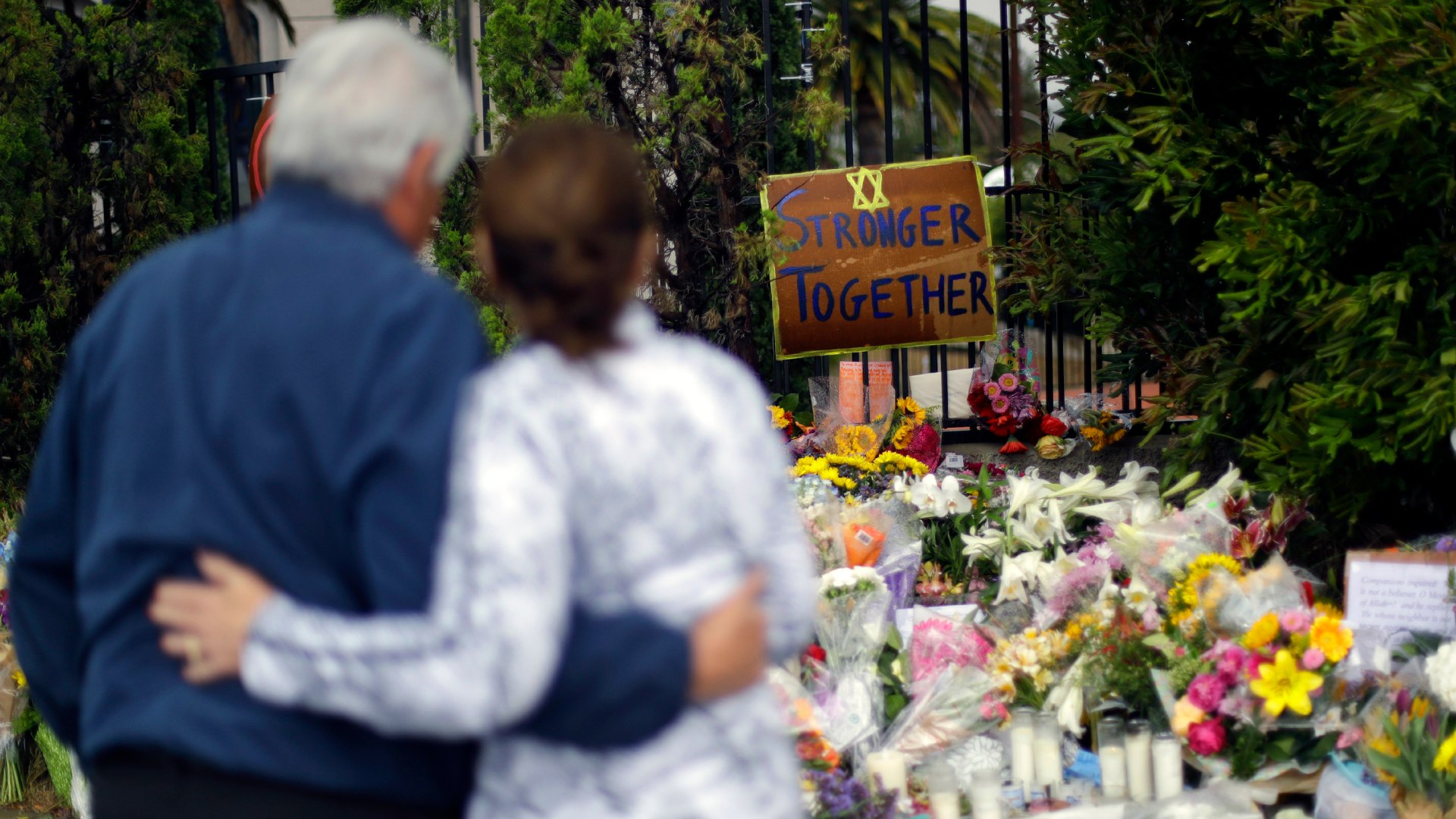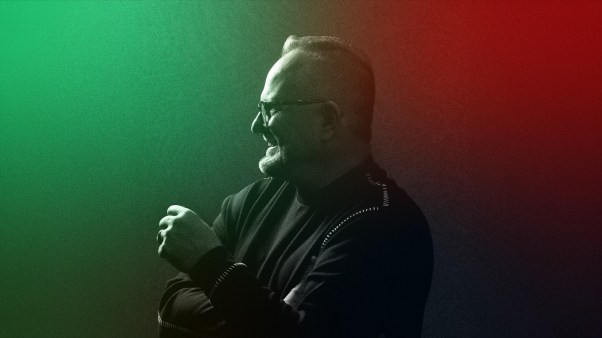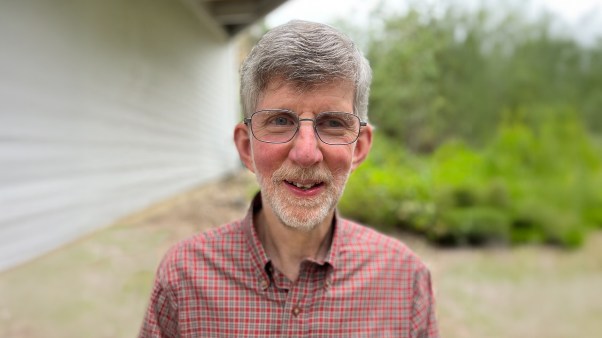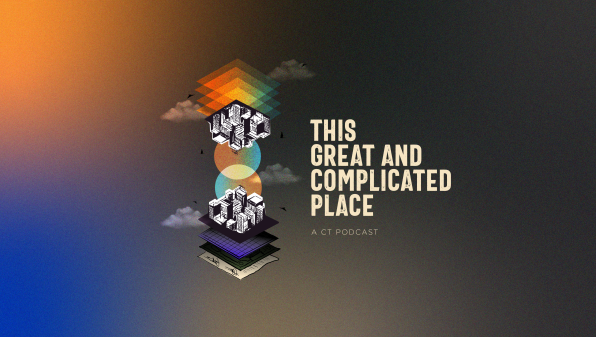Last weekend’s news of another synagogue attack was shocking but, sadly, not a shock. Mass shootings, while thankfully not routine weekly occurrences, have become a matter of “when” rather than “if” in modern America.
Yet, this attack at the Chabad of Poway synagogue in California stirred particular interest and questions among Christians since the suspect, 19-year-old John Earnest, was reported to belong to a Presbyterian church. In fact, he was apparently a member of a nearby congregation in my own denomination, the Orthodox Presbyterian Church (OPC).
In our response to such evil, we instinctually want to find an explanation or pinpoint a source to blame—in this case, some (even within the OPC) learned about his affiliation and speculated about hate preached from OPC pulpits. Faced with another’s tragedy, we are tempted to put our enemies at fault and score points for our side. But such tidy speculation loses sight of the complexity of such matters and casually commits the serious sin of slander.
A thoroughly Christian response cannot defensively eschew responsibility either—it should be informed by biblical teaching on life in this fallen world and the complicity of each and every one of us in it.
When we reflect on a figure like Earnest, we often think by default, “I thank you, Lord, that I am not like the other men who influenced this person”—be it the racists, the Leftists, the Rightists, the Nazis, the homophobes, the Jihadists, or another group. Perhaps it would be better to ask, “Is it I, Lord? Has anything I have said or done fueled the toxic culture in which such things are happening?”
When murder has become routine and mass shootings are starting to become a part of life, it is time for Christians to examine with sorrow our complicity in a fallen culture. Perhaps details will later emerge around the particular thoughts, actions, and events that led this troubled young man to such a despicable act—his family, church, and the watching world will be waiting for the results of the police investigation—but the fact that he appears to have acted alone should not exempt us from serious self-examination in the meantime.
I learned long ago, to my chagrin, that provocative comments I made in the classroom could be picked up and used by students in harmful ways I never imagined and that we all are responsible for the way we speak and speak about others. Over the years, I have struggled to speak respectfully and appropriately about those with whom I disagree. Regardless of our scope of influence, our words have consequences, as does the tone with which we speak and write them.
While this case represents the exceptional case of someone angry enough to attempt mass murder, according to Christ, our rage and slander are akin to murder (Matt. 5:21–22). Breaking the Ninth Commandment with a sneer and snarl is the fashionable and respectable sin in many Christian quarters. Day after day, anger, slander, stereotyping, and simplistic but furious blame-games play out on social media. We should all acknowledge our complicity in the larger cultural milieu that fuels division and hatred.
As a former pastor and as an Orthodox Presbyterian minister, I want to see the church ask: What can we do to try to stop such things happening in the future?
In the case of the OPC—a denomination of around 30,000 people—a single killer is one too many, but hardly a sign of widespread, anti-Semitic radicalization among our youth. The path to becoming a racist murderer and an attempted mass shooter is likely very complicated and, until more details emerge, it is inappropriate to apportion specific blame to anyone or anything but the killer himself.
However, we cannot respond with complacency. The OPC, like most churches, attracts a cross-section of society, including its fair share of misfits and socially marginal figures. Embracing sinners, as Christ himself did, also brings risks. I remember a professor of pastoral theology telling me that in any 150-person congregation, there’s likely someone engaging in spousal abuse; that proved true in my experience. Our congregations must be ready for the possibility of deeply disturbed individuals in our midst.
Pastors in particular need to take care in how they speak and write, lest their words be seized upon by those who might twist them to a violent purpose for which they were never intended. And they should also be conscientious in how they shepherd people, so that they can identify the troubled souls in their midst, help them, and, where necessary, protect others from such.
This is not a call for us to become cult-like and to police and micromanage the lives of congregants. Rather, it is an appeal for us all to take interest in how our congregants treat others, particularly those with whom they disagree, and to model in our own lives a better way.
In our culture, violence has become so routine that we have been anesthetized to it. It now takes a murder with a special context—racism, anti-Semitism, homophobia, misogyny, or sheer number or age of victims—to provoke outrage. Yet, we as Christians are called to mourn with those who mourn regardless of circumstance; murder is not made intrinsically more or less evil and tragic by the motivation of the murderer or the identity of the victim.
Every murderous death, whatever the circumstance, involves the destruction of one of God’s image-bearers and the permanent devastation of a family and a community as a result. We mourn for the victim of Saturday’s shooting, Lori Gilbert-Kaye, and her family and friends left to grieve such a vicious and awful attack. Her death is not an opportunity to score pitiful political points; it is an occasion to lament the devastation of sin upon this world in general, and upon her and her community in particular.
I do not know this alleged shooter, and I do not know what led him to commit such a terrible crime. But I suspect the anger that sadly characterizes so much of contemporary public discourse, and in which too many of us Christians, right and left, indulge, did not help.
This is not a moment for blaming “them” for what has happened. It is a moment to grieve with the family that has been destroyed by this senseless action, to examine our own part in this fallen culture, and to ask ourselves how we can truly represent something better to the watching world.
Carl R. Trueman is a professor at Grove City College and an ordained minister in the Orthodox Presbyterian Church.
Speaking Out is Christianity Today’s guest opinion column and (unlike an editorial) does not necessarily represent the opinion of the magazine.








